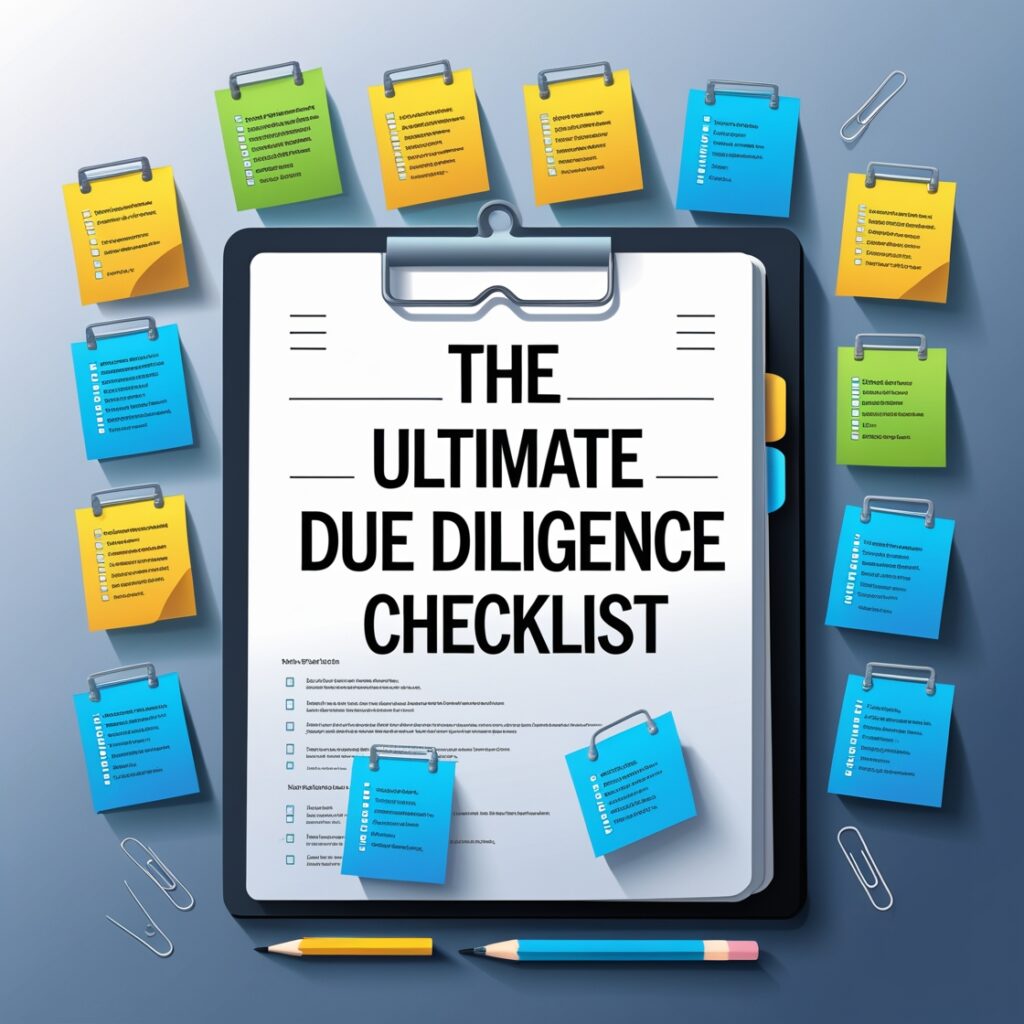
Due diligence is a crucial process that helps individuals and businesses evaluate an investment, acquisition, or partnership. Conducting proper due diligence ensures that you mitigate risks, validate the credibility of the target entity, and make informed decisions.
In this comprehensive guide, we will walk you through a detailed due diligence checklist, covering legal, financial, operational, and strategic aspects. Whether you are acquiring a company, investing in a startup, or entering a joint venture, this checklist will help you make a well-informed decision.
Due diligence is the process of thoroughly investigating a business or investment before finalizing a transaction. This examination ensures that there are no hidden liabilities, regulatory issues, or financial discrepancies that could impact the success of the deal.
For example, if you are buying a company, you will need to assess its financial statements, legal contracts, intellectual property, and market position before proceeding with the purchase.
There are different types of due diligence, depending on the nature of the transaction. Here are the main categories:
Review of financial statements (balance sheet, income statement, and cash flow statement)
Analysis of revenue sources and profitability
Debt and liabilities assessment
Tax compliance and obligations
Auditing previous financial records
Verification of company registration and licenses
Review of business contracts and agreements
Intellectual property rights assessment (trademarks, patents, copyrights)
Pending litigation or legal disputes
Compliance with local and international laws
Evaluation of business model and operations
Supply chain management analysis
Technology and IT infrastructure assessment
Workforce efficiency and HR policies
Environmental and safety regulations compliance
Industry analysis and market trends
Competitive landscape and positioning
Customer base and brand reputation
Future growth prospects and scalability
Compatibility with your investment goals
Long-term sustainability and exit strategy
Synergies and integration potential (in case of mergers & acquisitions)
SWOT analysis (Strengths, Weaknesses, Opportunities, Threats)
Here’s a step-by-step checklist to guide your due diligence process.
✅ Research the industry and competitors ✅ Identify key stakeholders and leadership team ✅ Assess the business model and revenue sources ✅ Evaluate company reputation and customer feedback
✅ Request and analyze financial statements for the past 3-5 years ✅ Verify tax returns and payments ✅ Check outstanding debts and liabilities ✅ Assess cash flow and profitability trends ✅ Look for hidden financial risks or irregularities
✅ Verify business registration and ownership details ✅ Review contracts, leases, and agreements ✅ Check for ongoing or past legal disputes ✅ Ensure compliance with industry regulations and labor laws ✅ Validate intellectual property rights
✅ Assess supply chain and vendor relationships ✅ Evaluate employee structure and HR policies ✅ Review technology and IT infrastructure ✅ Identify potential risks in day-to-day operations
✅ Study market trends and future industry growth ✅ Analyze competitive advantage and differentiation factors ✅ Consider brand reputation and customer loyalty
Even experienced investors can overlook critical aspects. Here are some common mistakes to avoid:
Skipping financial verification: Always cross-check financial records with independent audits.
Ignoring hidden liabilities: Look beyond what is presented to identify any undisclosed obligations.
Neglecting cultural fit: In mergers and acquisitions, cultural compatibility is as important as financial viability.
Relying on assumptions: Always demand factual evidence for every claim made by the seller.
Underestimating future risks: Conduct risk analysis for potential industry disruptions.
To streamline your due diligence process, consider using the following tools:
Bloomberg Terminal: For financial and market analysis
Dun & Bradstreet: For business credit reports
LegalZoom: For contract and legal verification
Crunchbase: For startup and investment research
Explore More Due Diligence Tools Here
The duration varies depending on the complexity of the deal. It can range from a few weeks to several months.
If significant risks are identified, you can negotiate better terms, request mitigation measures, or walk away from the deal.
While you can perform basic due diligence, it is advisable to hire financial, legal, and industry experts for thorough analysis.
Costs depend on the type of business and the depth of analysis required. It can range from a few thousand dollars to substantial amounts for large transactions.
Conducting due diligence is an essential step in any business transaction. By following this comprehensive checklist, you can minimize risks, ensure transparency, and make data-driven investment decisions. Whether you are acquiring a company, investing in a startup, or forming a partnership, due diligence is the key to long-term success.
Do you have any experience with due diligence? Share your thoughts in the comments below!
[Note: Always consult with financial and legal professionals before making investment decisions.]